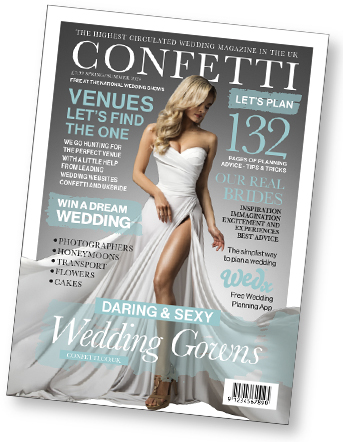Same-sex couples will now be able to get married in a register office or approved religious premises from 29 March 2014. This is good news for gay and lesbian couples in the UK who want to get married and not simply enter into a Civil Partnership.

Rai Jayne Hearse (right) and her bride-to-be, Nikki.
Civil Partnerships and gay weddings
Since 2005, gay couples have been allowed to enter into civil partnerships which are a separate union to marriage. A civil partnership provides the legal consequences of marriage but has no religious or spiritual association. A couple could choose to have their own religious or humanist blessing as a separate ceremony but the legal wedding was not seen under the law as being the same as marriage between a man and a woman.
The Government’s Equalities Minister, Maria Miller said:
“Marriage is one of our most important institutions, and from 29 March 2014 it will be open to everyone, irrespective of whether they fall in love with someone of the same sex or opposite sex. This is just another step in the evolution of marriage and I know that many couples up and down the country will be hugely excited that they can now plan for their big day and demonstrate their love and commitment to each other by getting married.”
The background to the Same-Sex Marriage Bill
The Marriage Act of 1949 did not actually stipulate that marriage partners have to be one male and the other female so technically same-sex marriage was not illegal back then. Same-sex marriage was, however outlawed under the Matrimonial Causes Act of 1973 as a direct political response to the emergence of the gay liberation movement.
The Same-Sex Marriage Bill has been the subject of much controversy over recent months since The House of Commons voted to allow same-sex marriage in England and Wales, despite massive opposition to the government’s plans.
Today’s news means that from March 2014 marriage will at last be for anyone who has fallen so deeply in love they feel the need to make an official commitment to the love of their life, male or female, by vowing to stay by their side forever.
What it really means to gay couples
Rai Jayne Hearse is a 28 year old bride from Blackpool who is currently planning to marry her bride, Nikki. She told me:
“Many people may not understand the importance of the same-sex marriage bill being passed but my partner and I are deeply in love and alongside being lesbians we still have traditional values which we were both brought up with: we want a proper wedding and to eventually start a family.
My partner and I are religious but we were turned away from all the churches in our town except one. Whilst we would have gone ahead with a civil partnership out of necessity, I am overjoyed that we will now being having a legal and spiritual ceremony that will be understood and recognised as a proper marriage. All we want is to be treated equally and our dream is slowly coming true.”
Anyone planning a wedding with a religious or civil ceremony, or currently a civil partnership if you are a same-sex couple, is choosing to publicly and legally celebrate their love and commitment to each other. It’s all about equality and so whether you’re a bride marrying another bride or a groom marrying another groom, with bridesmen or a best woman, it’s all about love.

